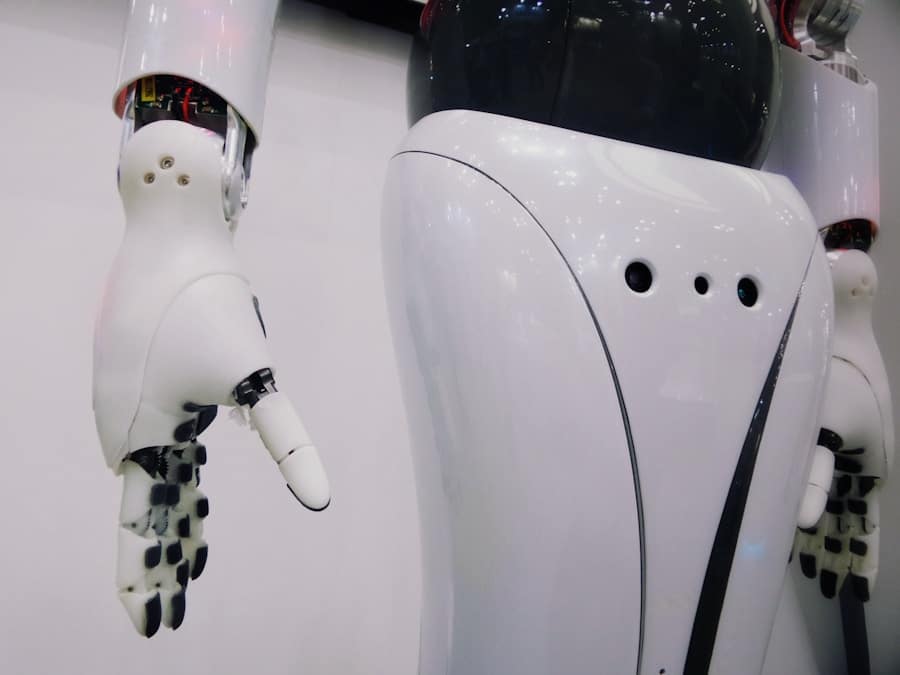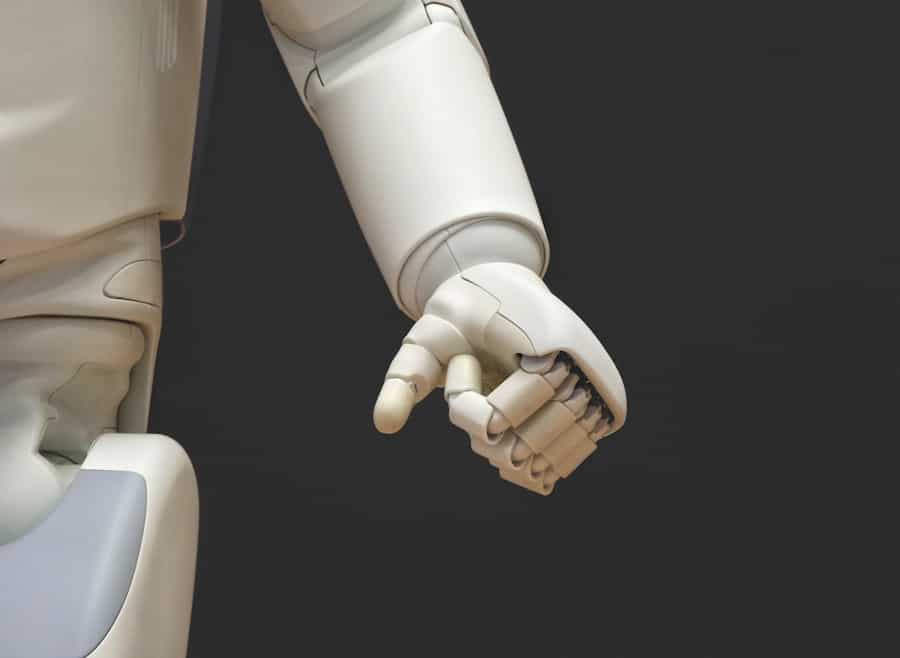Artificial Intelligence (AI) has emerged as a transformative force across various domains, and its integration into scientific research is particularly noteworthy. The traditional scientific method, characterized by observation, hypothesis formulation, experimentation, and analysis, is being augmented by AI technologies that can process vast amounts of data at unprecedented speeds. This evolution is not merely a trend; it represents a paradigm shift in how scientists approach the formulation and testing of hypotheses.
By leveraging machine learning algorithms and advanced computational techniques, researchers can now explore complex datasets that were previously insurmountable, leading to new insights and discoveries. The intersection of AI and scientific inquiry raises intriguing questions about the nature of hypothesis generation itself. Historically, hypotheses have been the product of human intuition, creativity, and experience.
However, with AI’s ability to analyze patterns and correlations within large datasets, the potential exists for machines to contribute to or even autonomously generate hypotheses. This capability could redefine the boundaries of scientific exploration, enabling researchers to venture into uncharted territories of knowledge. As we delve deeper into the role of AI in scientific hypotheses, it becomes essential to understand both its capabilities and limitations, as well as the ethical implications that accompany its use.
Key Takeaways
- AI is revolutionizing scientific inquiry by assisting in hypothesis generation and testing.
- AI plays a crucial role in data analysis and pattern recognition, helping scientists make sense of large datasets.
- AI’s ability to generate and test hypotheses can lead to faster and more efficient scientific discovery.
- The impact of AI on scientific discovery is significant, as it can uncover patterns and relationships that may have been overlooked by human scientists.
- Ethical considerations in AI-generated hypotheses are important to address, as biases and ethical implications need to be carefully considered.
The Role of AI in Data Analysis and Pattern Recognition
Data Analysis and Pattern Recognition
Machine learning algorithms excel in identifying subtle correlations and trends that may elude human analysts. For instance, in genomics, AI has been used to sift through millions of genetic sequences to identify potential biomarkers for diseases, significantly accelerating the pace of discovery.
Facilitating New Discoveries
AI’s capacity for pattern recognition extends beyond mere data analysis; it can also facilitate the identification of novel relationships between variables that were previously unconsidered.
Enhancing Our Understanding of the Universe
By employing techniques such as deep learning, researchers can train models to recognize complex patterns in astronomical data, which can then inform hypotheses about the formation and evolution of the universe. This capability not only enhances our understanding of existing theories but also opens avenues for new scientific inquiries.
AI’s Ability to Generate and Test Hypotheses

The ability of AI to generate and test hypotheses represents a groundbreaking advancement in scientific methodology.
By utilizing algorithms that analyze existing research literature and experimental results, AI systems can propose novel hypotheses based on gaps in knowledge or unexplored relationships within the data.
For example, researchers have employed natural language processing (NLP) techniques to mine scientific literature for underexplored areas, leading to the formulation of new research questions. Once hypotheses are generated, AI can also assist in their testing through simulation and predictive modeling. In fields such as drug discovery, AI models can simulate how different compounds interact with biological targets, allowing researchers to prioritize which candidates to test in the lab.
This not only streamlines the experimental process but also reduces costs associated with trial-and-error approaches. The integration of AI into hypothesis testing can lead to more efficient research cycles, enabling scientists to validate or refute hypotheses with greater speed and accuracy.
The Impact of AI on Scientific Discovery
The impact of AI on scientific discovery is profound and multifaceted. By enhancing data analysis capabilities and facilitating hypothesis generation and testing, AI accelerates the pace at which new knowledge is produced. In recent years, numerous breakthroughs have been attributed to AI-driven research methodologies.
For instance, in the field of materials science, AI has been instrumental in discovering new materials with desirable properties for applications in energy storage and electronics. Researchers have utilized machine learning algorithms to predict material behaviors based on their atomic structures, leading to the identification of novel compounds that would have taken years or even decades to discover through traditional methods. Furthermore, AI’s influence extends beyond individual discoveries; it has the potential to reshape entire fields of study.
In environmental science, for example, AI models are being used to predict climate change impacts by analyzing vast datasets from satellite imagery and climate models. These insights not only inform policy decisions but also guide future research directions. As AI continues to evolve, its role in scientific discovery will likely expand further, fostering interdisciplinary collaborations and driving innovation across various sectors.
Ethical Considerations in AI-Generated Hypotheses
As AI becomes increasingly integrated into scientific research, ethical considerations surrounding its use must be addressed. One primary concern is the potential for bias in AI algorithms, which can lead to skewed or misleading hypotheses. If the training data used to develop these algorithms is not representative or contains inherent biases, the resulting hypotheses may reflect those biases rather than objective truths.
This issue is particularly critical in fields such as healthcare, where biased algorithms could result in inequitable treatment recommendations or misdiagnoses. Additionally, the question of accountability arises when AI systems generate hypotheses or make predictions. Who is responsible if an AI-generated hypothesis leads to harmful consequences?
The lack of transparency in some AI models complicates this issue further; if researchers cannot fully understand how an algorithm arrived at a particular conclusion, it becomes challenging to assess its validity or reliability. Establishing ethical guidelines for the use of AI in scientific research is essential to ensure that these technologies are employed responsibly and that their contributions are both beneficial and equitable.
Challenges and Limitations of AI in Hypothesis Generation

Despite its many advantages, the application of AI in hypothesis generation is not without challenges and limitations. One significant hurdle is the quality and availability of data. While AI thrives on large datasets, many scientific fields still grapple with incomplete or poorly curated data sources.
Inadequate data can hinder the effectiveness of machine learning algorithms and lead to inaccurate or irrelevant hypotheses. Furthermore, the complexity of certain scientific phenomena may not be easily captured by existing data models, limiting the ability of AI systems to generate meaningful insights. Another challenge lies in the interpretability of AI-generated hypotheses.
While algorithms can identify patterns and correlations within data, translating these findings into scientifically valid hypotheses requires a deep understanding of the underlying domain knowledge. Researchers must be cautious when relying solely on AI-generated insights without critical evaluation and contextualization. The interplay between human expertise and machine intelligence is crucial; while AI can enhance hypothesis generation, it should not replace the nuanced understanding that human scientists bring to their fields.
Collaborative Opportunities between AI and Human Scientists
The future of scientific inquiry may lie in collaborative efforts between AI systems and human scientists rather than viewing them as competing entities. By harnessing the strengths of both approaches, researchers can create a more robust framework for hypothesis generation and testing. For instance, human scientists possess domain-specific knowledge that allows them to contextualize findings generated by AI algorithms effectively.
This collaboration can lead to more informed decision-making regarding which hypotheses warrant further investigation. Moreover, interdisciplinary collaborations can enhance the development of AI tools tailored for specific scientific applications. By working closely with domain experts, data scientists can create algorithms that account for unique challenges within particular fields.
This synergy not only improves the quality of AI-generated hypotheses but also fosters a culture of innovation where diverse perspectives contribute to scientific advancement. As researchers continue to explore these collaborative opportunities, the potential for groundbreaking discoveries will only increase.
The Future of AI in Revolutionizing Scientific Inquiry
Looking ahead, the role of AI in revolutionizing scientific inquiry appears promising yet complex. As technology continues to advance, we can expect even more sophisticated algorithms capable of tackling increasingly intricate problems across various disciplines. The integration of AI into scientific research will likely lead to a more interconnected global research community where knowledge sharing and collaboration are paramount.
Furthermore, as ethical frameworks evolve alongside technological advancements, researchers will be better equipped to navigate the challenges posed by AI in hypothesis generation. By prioritizing transparency, accountability, and inclusivity in their approaches, scientists can harness the full potential of AI while mitigating risks associated with its use. Ultimately, the future landscape of scientific inquiry will be characterized by a harmonious blend of human creativity and machine intelligence—an exciting frontier that promises to deepen our understanding of the natural world and drive innovation across all fields of study.
In a related article discussing the best software for house plans, it is evident that technology is continuously advancing and reshaping various industries. Just as AI is revolutionizing the scientific field by creating new hypotheses, software tools are also transforming the way architects and designers plan and visualize their projects. The article highlights the importance of utilizing the latest software to streamline the design process and enhance collaboration among team members. To read more about the best software for house plans, click here.
FAQs
What is AI?
AI, or artificial intelligence, refers to the simulation of human intelligence in machines that are programmed to think and act like humans. These machines are designed to perform tasks that typically require human intelligence, such as visual perception, speech recognition, decision-making, and language translation.
How is AI used in creating new scientific hypotheses?
AI is used in creating new scientific hypotheses by analyzing large amounts of data and identifying patterns and relationships that may not be immediately apparent to human researchers. AI algorithms can process and analyze data from various sources, such as scientific literature, experimental results, and observational data, to generate new hypotheses and research questions.
What are the benefits of using AI in creating new scientific hypotheses?
Using AI in creating new scientific hypotheses can lead to the discovery of novel research directions and insights that may not have been considered by human researchers. AI can also help researchers to explore complex and multidimensional data sets more efficiently, leading to the acceleration of scientific discovery and innovation.
What are the limitations of using AI in creating new scientific hypotheses?
One limitation of using AI in creating new scientific hypotheses is the potential for bias in the data used to train AI algorithms, which can lead to the generation of biased or inaccurate hypotheses. Additionally, AI algorithms may struggle to understand the context and nuances of scientific research, leading to the generation of hypotheses that are not feasible or relevant in a scientific context.
How is AI expected to impact the future of scientific research?
AI is expected to have a significant impact on the future of scientific research by enabling researchers to explore and analyze large and complex data sets more effectively, leading to the generation of new hypotheses and research questions. AI is also expected to facilitate interdisciplinary collaboration and the integration of diverse data sources, leading to more comprehensive and holistic approaches to scientific inquiry.

